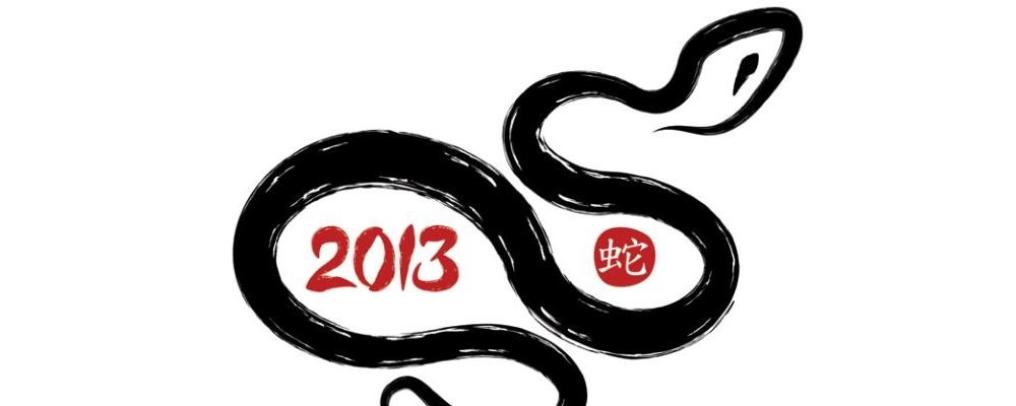Hong Kong's new Competition Ordinance was enacted in June last year and is expected to come into force late this year or early 2014. Mark Williams, Professor of Law, Hong Kong Polytechnic University, looks at the compliance implications of the Ordinance for company secretaries in Hong Kong.
On 14 June 2012, the Legislative Council enacted the Competition Ordinance No 14 of 2012 (Cap 619). The Ordinance was published in the Gazette on 22 June 2012 and will be brought into force in stages, with the institutional provisions being activated first and the prohibitions and substantive provisions to follow once the new Competition Commission (Part 9) and Competition Tribunal (Part 10) are established. Thus, it is unlikely that the prohibitory conduct rules will be in force until late 2013 or even 2014, as, once established, the Competition Commission will have to engage staff and then commence an extensive consultation exercise on the numerous guidelines that will have to be finalised before the prohibitions can be activated and investigations of allegations of anti-competitive conduct commenced.
This legislative innovation has been anticipated for almost 20 years, after the then Governor Chris Patten, invited the Consumer Council to investigate the need for such a law due to allegations of structural and behavioural problems in the domestic Hong Kong economy that rendered many sectors uncompetitive to the detriment of consumers, whether individuals or other businesses. By 1996, the Consumer Council had completed six reports indicating that anti-competitive conduct was a significant issue in each of the markets they had studied and they recommended that a general competition law should be enacted speedily to deal with these widespread problems which could ultimately negatively affect Hong Kong's overall economic competitiveness by inhibiting market entry by new firms and stifling innovation.
In late 1997, the new government rejected the Council's principal conclusions and denied that such anti-competitive problems that did exist were serious. A voluntary pro-competition policy was adopted, along with a committee, which would monitor developments. COMPAG had no power to investigate or to sanction anti-competitive conduct. This remained the position until 2005 when the second chief Executive Donald Tsang, changed policy and began the process that ultimately led to the enactment of the Competition Ordinance.
Meanwhile, two sectors of the economy (namely telecommunications and broadcasting) were subject to pro- competition rules from the mid-1990s though with different legal provisions and different enforcement agencies.
As a result of the Communications Authority Ordinance (Cap 616), the old Broadcasting Authority and the Office of the Telecommunications Authority were abolished and a single sectoral regulator was established, the Communications Authority. However, the Communications Authority will continue to implement the separate underlying regulatory provisions contained in Broadcasting Ordinance (Cap 562) and the Telecommunications Ordinance (Cap 106). This includes the two distinct competition regimes for each sector, both of which are different to the general competition rules that apply to the rest of the economy. The Communications Authority and the Competition Commission will have concurrent powers to enforce the competition rules.
Substantive competition rules
The purpose of the Competition Ordinance is to protect the process of competition, so ensuring that consumers (individuals and firms) have access to greater product choice through the encouragement of innovation, competitive prices and that markets remain open and dynamic. The law applies generally to 'undertakings’ which are defined in Section 2 as 'any entity, regardless of its legal status or the way in which it is financed, engaged in economic activity’. Companies, whether listed or unlisted, established under the Companies Ordinance (Cap 32) are caught by this definition so long as they are 'engaged in economic activity’.
The Ordinance creates two specific prohibitions – the making or giving effect to anti-competitive agreements, concerted practices or the decisions of a [trade] association 'if the object or effect... is to prevent, restrict or distort competition in Hong Kong’; this is known as the First Conduct Rule. The Second Conduct rule prohibits 'an undertaking with substantial market power [from] abusing such power by engaging in conduct that has as its object or effect the prevention, restriction or distortion of competition in Hong Kong’.
These provisions are rather imprecise and general but that is common in competition legislation globally, as the law seeks to protect the process of competition, which is not a legal but an economic concept. Consequently, whilst the Ordinance does provide some examples of anti-competitive conduct caught by the prohibitions it is not definitive as much depends on the facts of each case and the analysis of economic effects in a particular market which can be infinitely varied and also change over time.
Critics of pro-competition legislation often protest that the law is uncertain and a minefield for the unwary as the same act in market A might be legal but unlawful in market B depending on the differing characteristics of the product or service concerned, the nature of the supply or distribution channel, the size and market share of the suppliers or customers. The economic effect of the conduct will entirely depend on this
type of economic analysis to determine whether an adverse effect on competition in the relevant market has occurred or may occur in the future. The intention of the parties is irrelevant as the test is whether the 'object or effect’ of the conduct is anti-competitive.
Furthermore, the territorial scope of the Ordinance is wide. Where anti-competitive effects are caused in a domestic market in Hong Kong, the relevant undertaking will be liable regardless of whether the base of the undertaking is outside Hong Kong. Various exclusions and exemptions to the law are made, one of the most controversial being the exclusion of virtually all statutory bodies from the ambit of the Ordinance.
Enforcement by the Competition Commission
Enforcement of the Ordinance's conduct rules will be undertaken by the Competition Commission. Stand-alone private rights of action were included in the original Bill but were dropped following vociferous lobbying by various business groups who said they feared significant consumer litigation and also that large undertakings would use the threat of litigation to intimidate smaller rivals, though no evidence of this irrational phenomenon was provided from anywhere else in the world.
The Competition Commission has wide ranging investigatory powers, including a right to obtain documents
and information and to enter premises to search and seize evidence, when authorised by warrant. The Commission also has power to require information from relevant persons and the right not to provide self-incriminatory material is limited and it may require this information be verified by statutory declaration. The provision of false information or otherwise obstructing an investigation are specific criminal offences and subject to fines and/ or imprisonment.
A case may be settled by the issue of a warning notice if the conduct relates to the First Conduct Rule and does not concern 'serious anti-competitive conduct’ defined as price fixing, bid-rigging, market allocation or limiting production. Such a notice may require cessation of the offending conduct and if it is not obeyed, the Competition Commission may bring proceedings before the Competition Tribunal to impose penalties and other remedies. Additionally, the Commission may issue 'Block Exemptions’ to cover certain market practices or individual exemptions of infringing conduct subject to specific requirements. An infringement may also be settled by the offering of 'commitments’ by the offending party to the Commission. This might include promises to cease and desist from continuing such conduct or to do, or not do, anything else necessary to prevent future restrictions or distortions of competition. Breach of such a commitment would allow the Competition Commission to take further enforcement action. The Commission also has power to offer leniency in cases where a party co-operates with the Commission in providing evidence or information relating to breaches of the First or Second Conduct Rules. This power is often used in overseas jurisdictions in cases relating to cartels which are usually secretive and difficult to prosecute without 'inside-information’. The Commission may grant complete immunity from public sanctions in return for co-operation but follow-on actions by customers or suppliers who can prove damage would not be immunised.
Powers of the Competition Tribunal
If the case cannot be settled, the Competition Commission has no power to impose a penalty or make any other enforcement orders – such powers are reserved to the Competition Tribunal. The Tribunal will be headed by a High Court judge who may also sit with expert assessors where necessary.
The Competition Commission must prove its case to the civil standard – on a balance of probabilities.
The Competition Tribunal on being satisfied to the requisite standard of proof, that a breach of a conduct rule has occurred, has a wide range of powers to impose financial penalties (up to 10 percent of the Hong Kong turnover of the firm concerned for a maximum of three years during which the contravention took place). Additionally, the tribunal is given a wide range of powers to remedy breaches of the law including declarations; interim or permanent positive or negative injunctions; restoration of property; disposal of business operations or assets; modification of agreements; declaring agreements void or voidable; payment of damages; ordering a person to deal or not to deal with another; access or the right to use goods, premises or facilities; disgorgement of unlawful profits; and, lastly, that a person can be disqualified from being a director or involved in the promotion, formation or management of a company for up to five years with a criminal penalty of a fine of up to HK$1 million and imprisonment of up to two years should the disqualified person breach the order. It should also be noted that persons deemed to be accessories to a contravention may also be subject to sanctions by the Tribunal.
Lastly, customers or suppliers who can prove damage caused by such contravening conduct that has either been admitted to the Commission or proved at the Tribunal by the Commission, are able to seek legal redress for damage suffered and other remedies to provide them with compensation and to ensure that the consequences of the anti-competitive conduct are fully remedied.
The role of the company secretary
Clearly, the Competition Ordinance is a major piece of economic regulation and imposes significant new obligations on companies and may significantly affect their commercial behaviour. Conduct which may have been entirely legal or a long-standing industry practice, may now be deemed to be unlawful. If contravening behaviour is suspected, the company might be subject to investigation by the Competition Commission. If that investigation is obstructed, criminal offences may be committed. If anti- competitive behavior is admitted or proved, the company may be liable to substantial penalties and be subject to orders that might radically affect its commercial behaviour. Private parties may be able to seek damages or injunctions. Legal costs may be heavy as the 'loser pays the winners costs’ principle will apply. Directors may face disqualification for up to five years where they have been personally involved with the offending conduct by directly approving it, or not taking reasonable steps to prevent its occurrence. Persons in the company who are accessories may also be liable.
Consequently, company secretaries need to take immediate action to ensure that they and their boards full appreciate how these new prohibitions will affect the business conduct of their company. Education of directors and relevant staff needs to be undertaken to raise awareness of the new law, what may not be permitted and the consequences of non-compliance should an investigation be conducted. The new legislation may well not be brought into force for at least another year and so company secretaries have a window of opportunity to get themselves and their companies fully prepared for the implementation of this new regime. However, much of the detail in relation to the exact definition of offending conduct, how the Competition Commission will select enforcement targets, utilise its investigatory functions and the attitude of the Competition Tribunal to the seriousness of breaches of the law are all, as yet, unknown. However jurisdictions such as the UK, Singapore and Australia have all been through this process previously, so significant lessons can be learnt from their experience that will be useful to Hong Kong.
The Competition Commission will have to produce numerous sets of guidance in relation to various aspects of the Competition Ordinance which will set key parameters to assist companies and their advisers assess their business practices and to consider what, if any, risk they run of contravening the law and how that eventuality can be minimised.
Company secretaries can, and should, play a leading role in educating their companies about the new law. They must become familiar with the principles of the law and how it will affect their companies. They may be held responsible by stakeholders if they neglect this duty and may even render their companies or themselves liable to sanctions if this obligation is neglected. Ultimately, compliance with the new Competition Ordinance is just another requirement of good corporate governance practice.
Mark Williams, Professor of Law
Hong Kong Polytechnic University
The author can be contacted by email: afmarkw@polyu.edu.hk, or by phone: 2766 7099. Professor Williams will be holding a set of workshops in 2013 to assist members understand the principles and conduct risk assessments of company activities with regard to the new competition law.



